Understand the importance of steel pipe hardness in material selection
Update:2024-11-26 View(s):782 Keywords :steel pipe hardness, steel pipe material selection, steel pipe importance
The hardness of steel pipes refers to the ability of steel pipe materials to resist deformation or scratches, which directly affects the performance and durability of steel pipes in different environments. The hardness of steel pipes is usually determined by hardness testing. Common testing methods include Brinell hardness, Rockwell hardness, etc. The hardness of steel pipes is closely related to their materials, production processes, etc. Understanding the hardness of steel pipes helps us make correct material selection and design decisions in the engineering and manufacturing fields.
First, factors affecting the hardness of steel pipes
1. Material type: Different types of steel pipe materials have different hardness properties, such as carbon steel, alloy steel, stainless steel, etc., and their hardness ranges and change patterns are different.
2. Heat treatment process: Heat treatment can significantly affect the hardness of the steel pipe. By regulating the heat treatment process, the organizational structure of the steel pipe can be changed, thereby affecting its hardness and strength.
3. Cold working: Cold working can improve the hardness of steel pipes. The density and hardness of steel pipes can be increased through cold drawing, cold rolling, etc., which is suitable for some occasions that require higher hardness.
4. Alloying elements: The addition of alloying elements can significantly change the hardness characteristics of steel pipes. For example, adding hardness elements such as chromium, molybdenum, etc. can increase the hardness of steel pipes.
Second, the importance of steel pipe hardness
As one of the commonly used materials in engineering structures, steel pipe's hardness is crucial to its performance in different application scenarios:
1. Wear resistance: Steel pipes with high hardness have good wear resistance and are suitable for occasions that require long-term friction or wear, such as pipelines transporting granular materials such as coal mines and ores.
2. Pressure resistance: Steel pipes with higher hardness can withstand greater pressure and are suitable for pipeline systems that bear high-pressure liquid or gas.
3. Deformation resistance: In some projects that need to maintain shape stability, choosing steel pipes with appropriate hardness can ensure the stability and reliability of the system.
Third, how to choose steel pipes with appropriate hardness
In actual projects, it is crucial to choose steel pipes with appropriate hardness, and the following factors need to be considered comprehensively:
1. Usage environment: According to the specific use environment of the project, select the hardness of the steel pipe that adapts to the environmental requirements. For example, in a corrosive environment, corrosion-resistant materials need to be selected.
2. Bear mechanical load: According to the size and type of mechanical load that the project needs to bear, steel pipes with appropriate hardness are selected to ensure the stability of the system.
3. Cost considerations: Steel pipes with higher hardness are usually more expensive, and a balance needs to be made based on the project budget and performance requirements.
4. Processing: Considering the convenience of processing and installation, choosing steel pipes with appropriate hardness is also an important consideration.
Fourth, conclusion
The hardness of steel pipes is a comprehensive performance index that affects the wide range of applications of steel pipes in engineering and manufacturing fields. Correctly understanding the importance of steel pipe hardness and rationally selecting steel pipes with appropriate hardness is of great significance to ensuring project quality and improving use efficiency. In future engineering design and material selection, let us give full play to the role of steel pipe hardness as an indicator to provide solid support for the development of all walks of life.
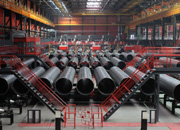 Threeway Steel is known as a professional supplier engaged in manufacturing and distributing a wide range of steel pipe, and our headquarter located the central part of China – Hunan and six associated factories throughout China.
Threeway Steel is known as a professional supplier engaged in manufacturing and distributing a wide range of steel pipe, and our headquarter located the central part of China – Hunan and six associated factories throughout China.
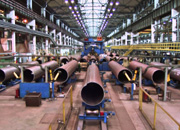 Threeway Steel is known as a professional supplier engaged in designing, manufacturing and distribution of a wide range of steel products with the headquarter located the central part of China – Hunan and six associated factories throughout China.
Threeway Steel is known as a professional supplier engaged in designing, manufacturing and distribution of a wide range of steel products with the headquarter located the central part of China – Hunan and six associated factories throughout China.
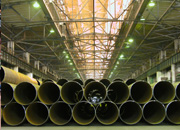 Threeway Steel is known as a professional supplier engaged in designing, manufacturing and distribution of a wide range of steel products with the headquarter located the central part of China – Hunan and six associated factories throughout China.
Threeway Steel is known as a professional supplier engaged in designing, manufacturing and distribution of a wide range of steel products with the headquarter located the central part of China – Hunan and six associated factories throughout China.
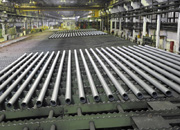 Threeway Steel is known as a professional supplier engaged in designing, manufacturing and distribution of a wide range of steel products with the headquarter located the central part of China – Hunan and six associated factories throughout China.
Threeway Steel is known as a professional supplier engaged in designing, manufacturing and distribution of a wide range of steel products with the headquarter located the central part of China – Hunan and six associated factories throughout China.
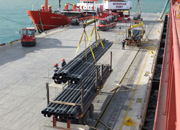 Threeway Steel is known as a professional supplier engaged in designing, manufacturing and distribution of a wide range of steel products with the headquarter located the central part of China – Hunan and six associated factories throughout China.
Threeway Steel is known as a professional supplier engaged in designing, manufacturing and distribution of a wide range of steel products with the headquarter located the central part of China – Hunan and six associated factories throughout China.

